Powder vs liquid detergent: which is best for your laundry?
Stuck between powder vs liquid detergent? Here’s the answer
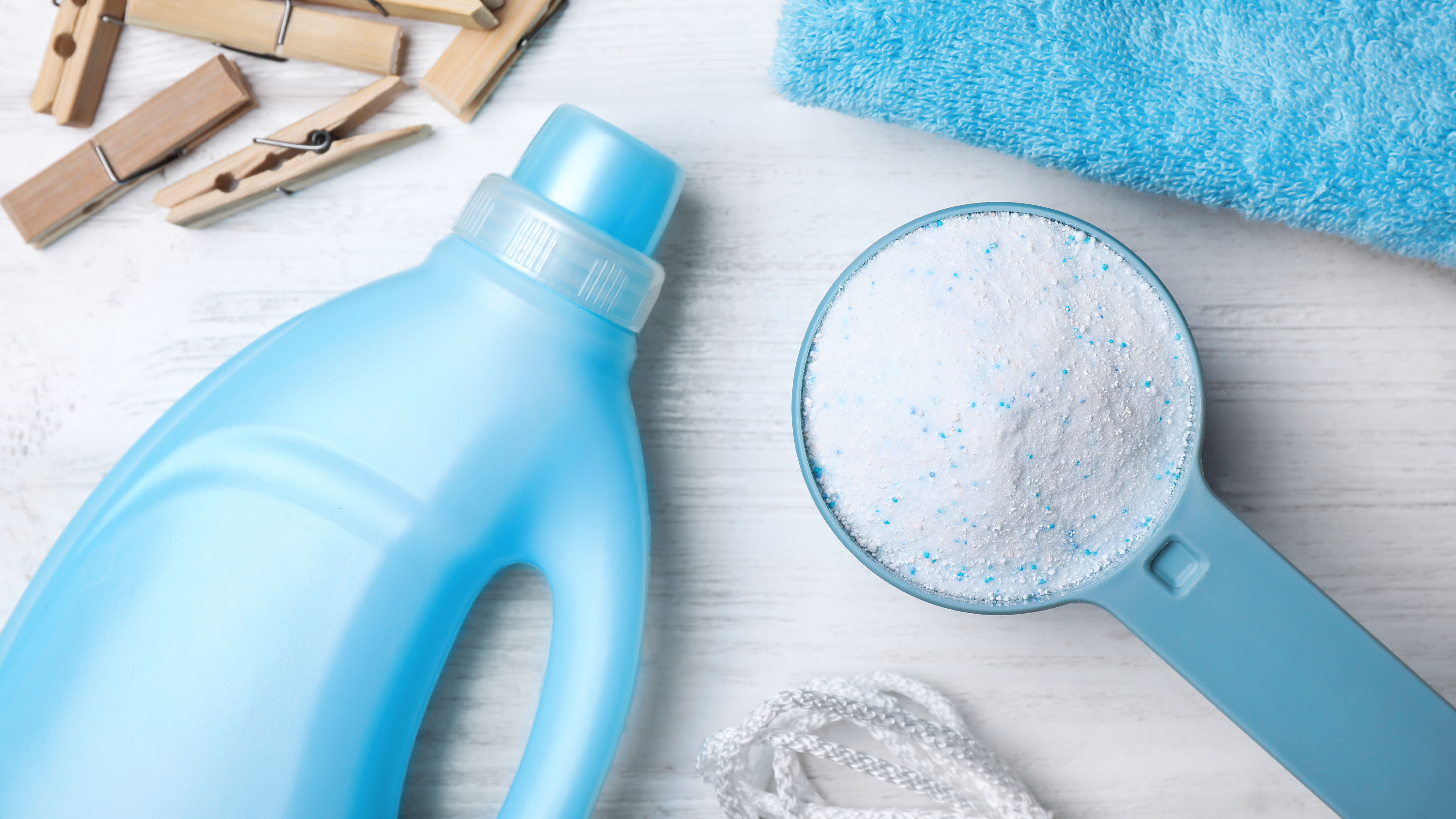
Have you ever asked yourself which is better between powder vs liquid detergent? You’re not alone. Most of us tend to stick to the same stuff — either driven by value for money or by what family and friends recommend. However, the truth is that each type of laundry detergent comes with its own benefits and drawbacks and one will always work better than the other, depending on your circumstances.
Here, we will break down the differences between powder and liquid laundry detergent, so you can decide which will work best for you and your clothes, once and for all. We will take into account the best options for selective stain removal, as well as which will be beneficial to the best washing machines. That way, you can rest assured that you’re using the right product when it comes to powder vs liquid detergent.
Just don't make any of these 7 laundry detergent mistakes that could cost you. Plus, here’s why fabric softener is bad news for you and your washing machine.
Benefits of powder detergent
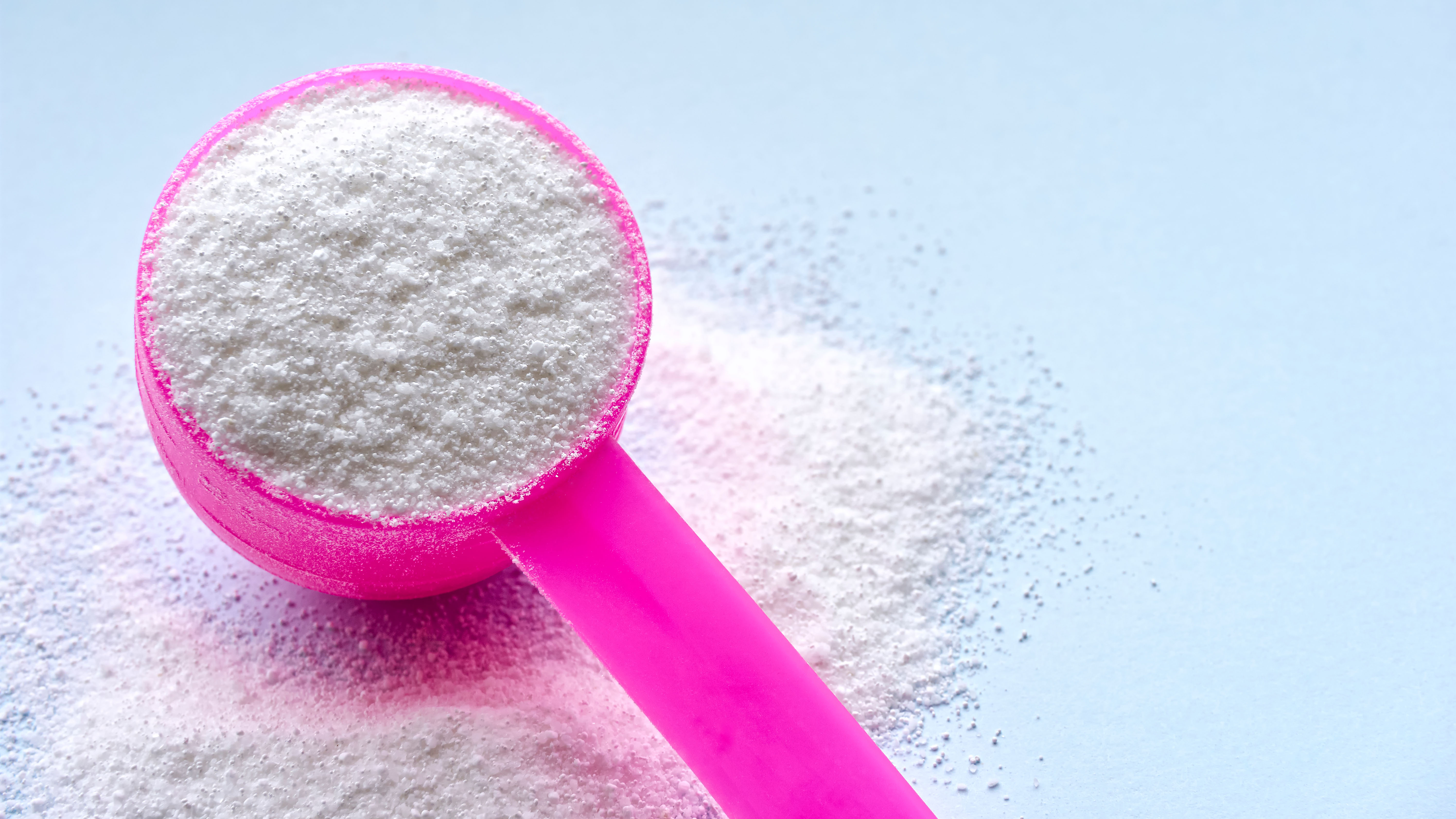
1. Great for mud and blood stains — First of all, powder detergent is generally better at removing active/outdoor stains. This is because powder detergent contains different surfactants compared to liquid, which is what provides the cleaning power. The compounds found in powder detergent tends to make it more effective on stains such as mud, blood and grass. That means if you’re a keen gardener or often deal with heavy-set stains, powder detergent is best.
2. Keeps whites white — Powder detergent is also ideal for keeping your whites white. This is because it often contains enzymes and whitening agents, although you will need to check the ingredients list to confirm this. So, if your white bedsheets are greying, powder detergent could be the answer.
3. It lasts — I speak from experience when I say that powder detergent lasts. One box of powder detergent can cover over 100 washes. That means it can be months before you need to consider topping up. As a powder, this type of detergent will stand the test of time as well, giving it a long shelf life.
4. Value for money — Because of the above point, power detergent is also generally good value for money. It can cost as little as 10 cents a wash depending on your load and water hardness.
Get instant access to breaking news, the hottest reviews, great deals and helpful tips.
5. Packaging better for the environment — While most detergents aren’t ideal environmentally speaking — the packaging itself makes a difference. Powder detergent is usually available in recyclable cardboard packaging, which is a plus versus the plastic found with liquids.
Negatives of powder detergent
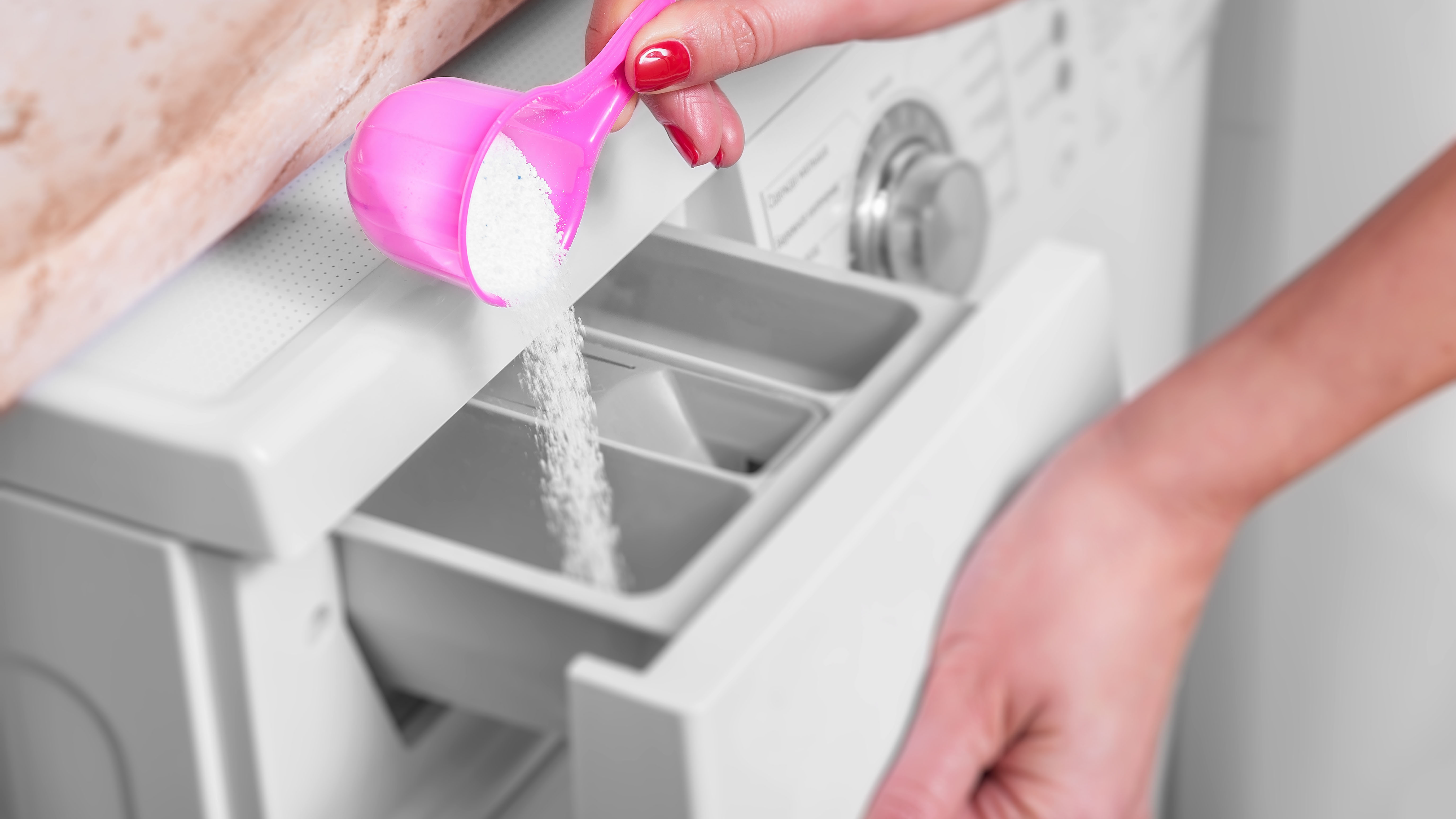
1. It’s messy — You can’t sugarcoat it, powder detergent is messy to use. It can easily spill during dosing and application, for which you will need to get one of the best vacuums out to collect. It can also leave remnants behind in your detergent drawer if it hasn’t fully rinsed away, which will also need to be cleaned.
2. Not good for sensitive skin — Because it’s a powder, this type of detergent needs to dissolve in the wash to be effective, which requires high temperatures. However, powder detergent doesn’t always dissolve completely, especially in colder cycles, which means it is more tricky to rinse away versus liquid. The result is more residual detergent left behind in the laundry, which can cause reactions for sensitive skin.
3. Not good for the washing machine — We touched upon powder detergent leaving behind residual clumps in your detergent drawer. It can actually do this throughout the internals of your washing machine, resulting in a potential blockage or at least a breeding ground for mold. To avoid expensive repairs, be sure to learn how to clean a washing machine if you suspect this.
4. Not ideal for hand washing — Because it doesn’t dissolve easily in cooler temperatures, powder detergent isn’t ideal for hand washing either. You can end up with a lot of powder residue coating your delicates if you do this.
5. Can take up space — Boxes of powder detergent are generally quite large and cumbersome, especially once opened. So, make sure your laundry shelf has enough space before you buy. Because of its cardboard packaging, it’s vulnerable to the damp and any leaks as well, so keep it stored in a cool, dry place.
Benefits of liquid detergent
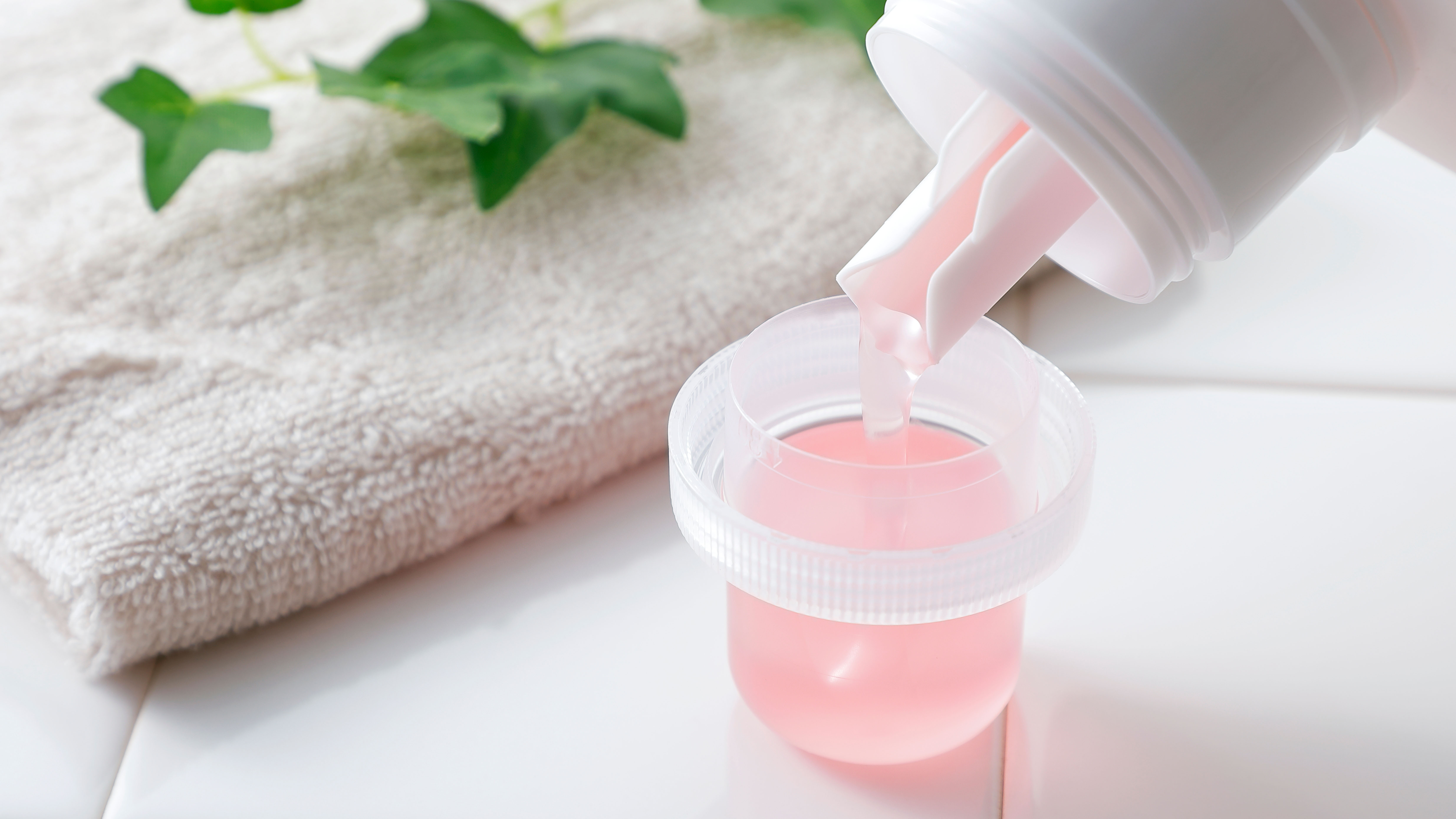
1. Great for oil and grease stains — Just as powder detergent is good for mud and blood stains, liquid detergent works well on oil and grease stains. This is because it contains alcohol ethoxylates, which is particularly effective on these substances. So, if you’re a keen chef or a car mechanic, liquid laundry detergent may be best.
2. Better for sensitive skin — Because of its liquid state, liquid detergent dissolves easily, even in cold water. So, it naturally rinses better during the final stages of the washing cycle. As such, there’s likely less residual detergent in your clothing versus powder, which makes it the better option for sensitive skin and allergies.
3. Convenient to dose — Liquid can still spill as you measure it out, but it’s arguably less messy vs powder. Plus, if you opt for liquid pods, measuring out the dosage becomes entirely unnecessary.
4. Good for storage — Bottles of liquid detergent are more compact versus boxes of powder detergent. Being made of plastic, they’re generally more sturdy as well.
5. Better for hand washing — As it dissolves that much easier, liquid detergent is naturally the better choice for hand washing. Plus, liquid detergents designed for delicate washes are widely available as well, such as Molly's Suds Delicate Wash Liquid Laundry Soap ($12.34, Amazon). In addition, liquid detergent is more ideal for spot-treating stains.
6. Better for washing machine — For the same reason, liquid detergent is not so likely to leave residue behind in your washing machine. That’s not to say you’re completely in the clear though — washing machines will still need cleaning regularly to keep on top of any build up of soap scum and limescale.
Negatives of liquid detergent
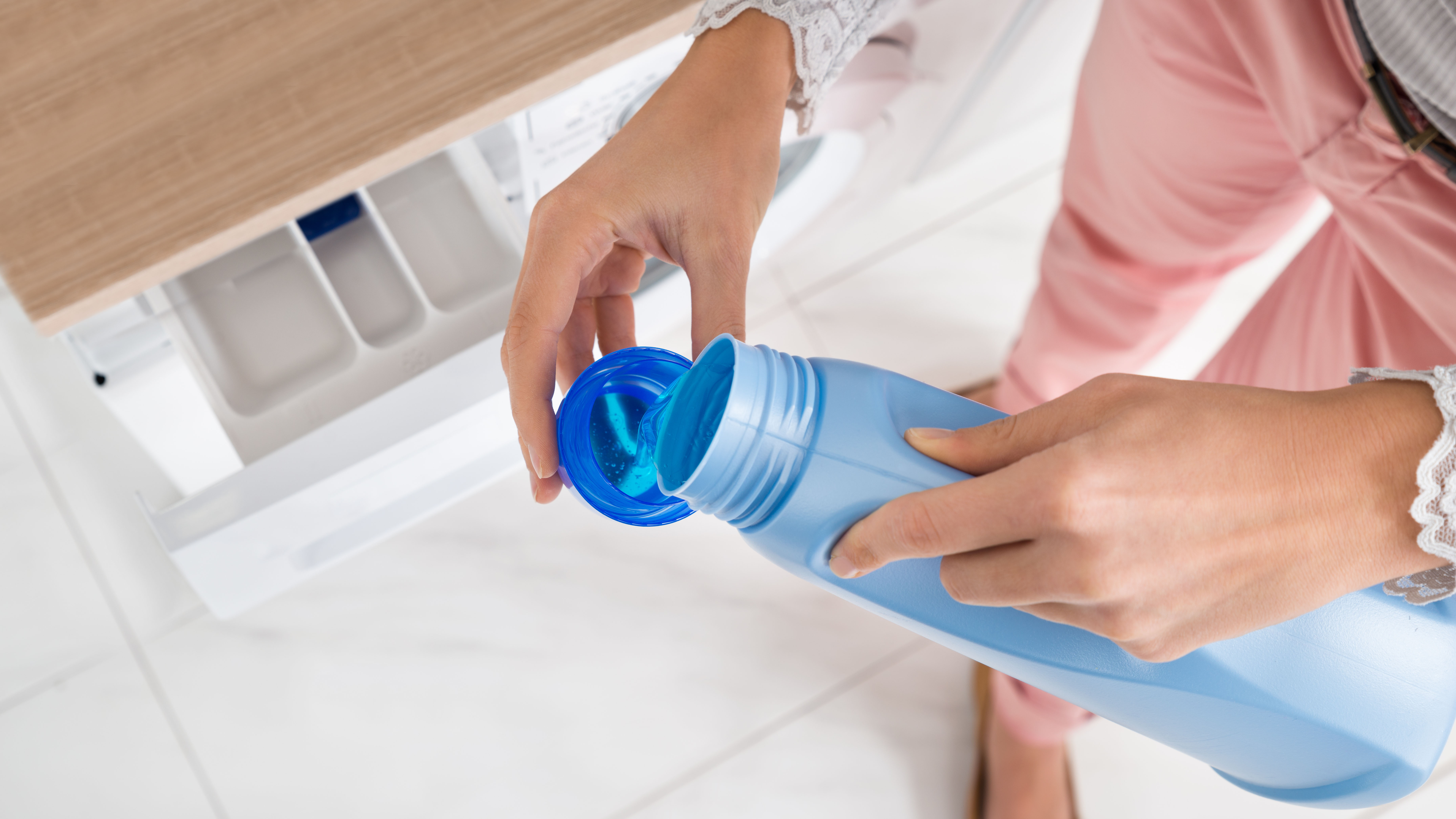
1. Expensive — When comparing prices directly, liquid detergent is the more expensive option, especially if you buy pods which can cost up to twice as much.
2. Can be used up quickly — It seems like you get through liquid much more quickly versus powder as well. The bottles tend to contain less wash loads, although this is not always the case.
3. Easy to dose incorrectly — It’s very easy to use too little or too much liquid detergent as the measurements on the dosage cap are often tricky to read. This results in excess waste, or an inadequate cleaning performance.
4. Packaging not so good for the environment — Liquid detergent packaging tends to be made of plastic, which makes it the less environmentally friendly of the two options.
Verdict
Ultimately, liquid detergent seems to have more benefits. However powder detergent provides a solution where liquids cannot. The best option for you will depend on what you’re washing and your situation. If you have sensitive skin, you should stick to liquids, while those who care about value for money are better off with powder.
I personally use both, and interchange depending on the situation. To find out which option is better for you, consider your needs and preferences and see which ticks the most boxes.
For more washing tips, tricks, and how-tos, check out our guides on best clothes dryers, 7 signs that you need a new washing machine and what do laundry symbols mean? Also, don't make this one mistake when doing your laundry!

Katie Mortram used to be a Homes Editor for Tom's Guide, where she oversaw everything from kitchen appliances to gardening tools, as well as smart home tech. Specializing in providing expert advice for cleaning and home manintenance, she now works as Household Advice Editor for Good Housekeeping.
 Club Benefits
Club Benefits





